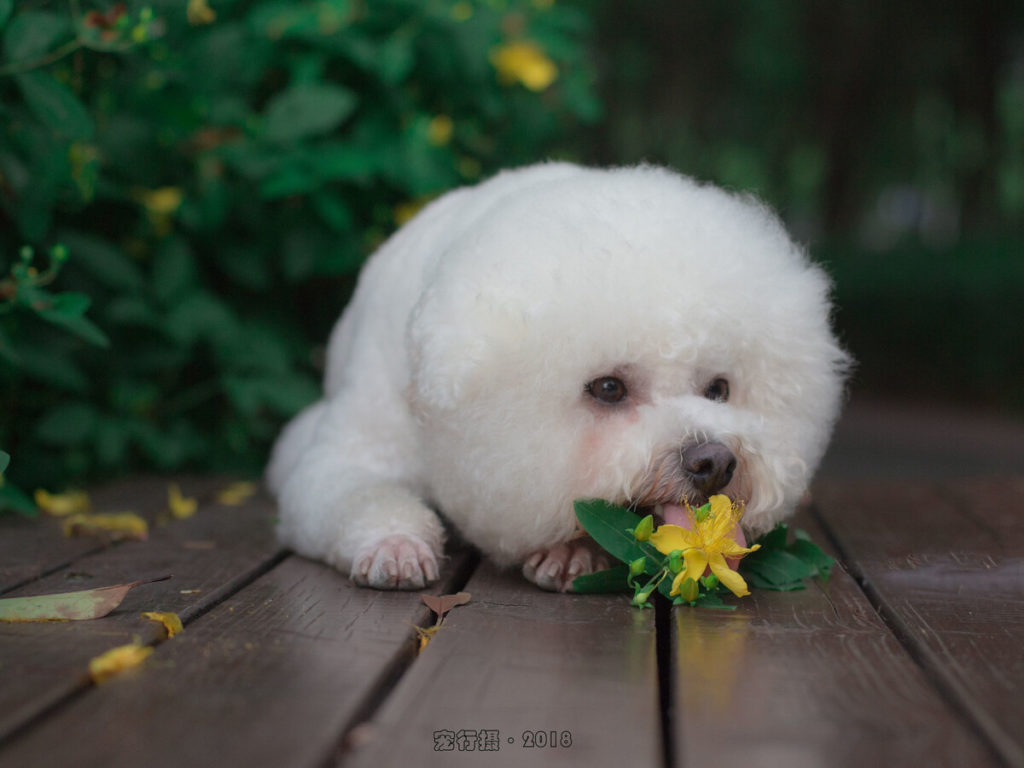Has your Chihuahua suddenly stopped eating? Is he acting strange around his food bowl? Are you worried and don’t know what to do? It’s time to find out why your Chihuahua won’t eat and how to get him eating again.
Why won’t my Chihuahua eat?
- Your Chihuahua is unwell
- Your Chihuahua’s teeth hurt
- Your Chihuahua doesn’t like the food
- Your Chihuahua doesn’t like the food bowl
- Your Chihuahua doesn’t like the smell of the bowl
- Your Chihuahua isn’t hungry
- Your Chihuahua is attention seeking
- Your Chihuahua doesn’t like being watched
- Your Chihuahua doesn’t like change
- Your Chihuahua is anxious
- Your Chihuahua is recovering
- Your Chihuahua has side effects
- Your Chihuahua is hormonal
Read on to find out what the possible causes could be, what quick and easy changes you can make to get your Chihuahua eating again, and when you should contact the vet.

Why is my Chihuahua refusing to eat?
Chihuahuas are a greedy breed so, when they’re off their food, you know something’s up. Although there could could be many things going on, the main reasons your Chihuahua won’t eat are:
Your Chihuahua is unwell
Even though Chihuahuas can’t tell you when they’re ill, they can show you. So, if your Chihuahua has suddenly gone off his food, and there doesn’t seem to be a logical explanation, he could be unwell. It could be that he’s eaten something outside that’s given him a bit of an upset tummy. But it could also be something more serious like cancer, kidney or liver disease. If your Chihuahua has suddenly stopped eating and drinking water, or has any other concerning symptoms, contact your vet immediately.
Your Chihuahua’s teeth hurt
It’s not unusual for Chihuahuas to get dental issues. Any sort of decay, sore teeth or gums, could cause your Chihuahua to stop eating. This is more common in senior Chihuahuas, but cracked or infected teeth can happen at any age. Puppies may also stop eating while teething as the food may be too hard to eat.
Your Chihuahua doesn’t like the food
Chihuahuas can be fussy with food. One minute they’re gobbling it all down. The next, they’re point bank refusing to eat! Sometimes, it’s down to food boredom and wanting to try something new. Other times, it’s because they’ve been fed too many tasty treats and are holding out for something better! But if you’ve changed your Chihuahua’s food recently, there’s a high chance he doesn’t like what you’re now feeding him.
Your Chihuahua doesn’t like the food bowl
If your Chihuahua’s food bowl is made of metal, it can make a horrible scratchy noise against the floor. It’s a bit like fingernails down a chalkboard to a Chihuahua! The noise may frighten him enough to stop him eating. His tag or collar could also chink against the edge of the bowl, and that may cause him to back away from it. In fact, even his reflection in the metal could freak him out enough to stop him eating.
As well as noise, some Chihuahuas don’t like the shape or size of their bowl. If it’s too deep or big, his long nose may get in the way of him eating properly. He might even take the food out of the bowl and dump it on the floor to eat instead!
Your Chihuahua doesn’t like the smell of the bowl
Chihuahuas have sensitive noses and strong scents can put them off their food. Have you cleaned your Chihuahua’s food bowl in different washing up liquid? Do you have new dishwasher tablets? Also, if his bowl hasn’t been cleaned enough, there could be old dried food particles inside that may smell and put him off eating.

Your Chihuahua isn’t hungry
If you’ve been over-feeding your Chihuahua with treats and food during the day, he may not be hungry at mealtimes. He might not want to eat his food, but doesn’t want anyone else to eat it either (not that you would but he doesn’t get that!). This can make him act a bit strange around his food bowl. He may try burying his food under his bowl or could just sit and stare at it. This can look like a refusal to eat, but is actually just a full tummy!
Your Chihuahua is attention seeking
Some Chihuahuas don’t eat because they get attention for NOT eating. If you stand by his food bowl, call his name, point at his food and desperately try to encourage him to eat, he may start to enjoy the attention he gets! If he’s happy to eat bits of fresh chicken or chunks of cheese from your hand, he may well be attention seeking!
Your Chihuahua doesn’t like being watched
Some Chihuahuas simply don’t like being watched when they eat. Is there a lot of activity in the room when he’s eating? Do you have kids doing homework? Is it noisy or busier than usual where he normally eats? Has the position of his bowl moved recently? Some Chihuahuas would rather wait until no one is around to gobble up their food in peace.
Your Chihuahua doesn’t like change
A sudden refusal to eat can sometimes coincide with some sort of change at home. Have you moved house or had a new baby? Do you have a new partner? Has a new dog or cat joined your family? Have you been doing any home renovations? Have you started a new job? Any change to your Chihuahua’s normal routine could spook him enough to alter his eating habits.
Your Chihuahua is anxious
Chihuahuas are a noisy breed, but they’re also very sensitive to loud bangs. They can get really distressed by things like fireworks or thunder and lightening. For the following days, they may be overly anxious and clingy. This increase in stress can occasionally affect appetite. That’s why it’s important to act like loud bangs outside are no big deal (as much as it’s possible!).
Your Chihuahua is recovering
If your Chihuahua has had any veterinary treatment or been neutered recently, he may not feel that hungry. Maybe he was given some medication that caused him to lose his appetite. Illnesses and procedures of any kind can take time to get over, but speak to your vet if you’re worried your Chihuahua seems out of sorts.

Your Chihuahua has side effects
Some flea treatments, worming treatments and vaccinations can have side effects that may change your Chihuahua’s behaviour and eating habits. It’s a good idea to watch him more closely for a few days after any treatments or vaccinations. Speak to your vet if you notice anything that concerns you.
Your Chihuahua is hormonal
Hormone changes can affect appetite. So, if a female Chihuahua is in season or having a phantom pregnancy, she may go off her food. If a male Chihuahua gets the scent of a female in season, he may also go off his food.
How long can a Chihuahua go without food?
Chihuahuas shouldn’t go more than 3 days without food, but don’t leave it that long. If your Chihuahua has suddenly stopped eating and isn’t drinking water, don’t wait, contact your vet immediately! It’s best to rule out any health conditions before trying other ideas.
How do you get your Chihuahua to eat?
If your Chihuahua seems absolutely fine, is excited, playful and running around like normal, some of the ideas below may help get him eating again. But, if you have ANY doubts about your Chihuahua’s health, contact your vet before trying any of the tips below.
Hand feed your Chihuahua
Start by hand feeding your Chihuahua a few treats to see if he’ll eat. Work towards hand feeding him the same food he’d normally eat from his dinner bowl. If he eats from your hand OK, you should be able to rule out most teeth problems (unless there are other symptoms that concern you). If your Chihuahua doesn’t eat anything at all, you should contact your vet for advice.

Change the food bowl
One of the first things you should change is the food bowl. Some Chihuahuas simply don’t like the screechy, scratchy noise of a metal dog bowl. Ceramic bowls are a better option but, even then, a lot of Chihuahuas still prefer to eat from a flat plate! If you have a Chihuahua who picks up his food and dumps it on the floor before eating, swap over to a flat dish or plate to see if that makes a difference. Also, put a mat under the bowl or dish, or use a non-slip bowl to stop it moving around.
Feed on schedule
Feed at the same time every day. Put the food bowl down for 20 minutes and then take it away again. If he eats, that’s great. If he doesn’t eat, wait until his next mealtime before putting the bowl on the floor again. Don’t speak to your Chihuahua or look at him when you do this, and don’t encourage him to eat. Just put the bowl down, act like it’s no big deal and leave him alone to eat. Within a short time, he should start eating on his own. If he doesn’t, contact your vet.
Move the food bowl
Sometimes, just moving the food bowl to a different room or the other side of the kitchen, can change the negative association your Chihuahua has with eating. Try the bowl in a new place to see if that makes a difference.
Revert back
If you’ve recently changed your Chihuahua’s food and he’s since stopped eating, you may need to revert back to what you were feeding before. It could be as simple as he doesn’t like the taste or texture of the new food. Sudden food changes can sometimes cause stomach upset and diarrhea. So if you notice any runny, watery, squishy, cow-patty, pebbled, rock hard or dry stools, contact your vet for dietary and health advice.
Check the dog food is in date
Check your Chihuahua’s food is in date and smells OK. It may be better to open a new tin or packet, rather than continue to feed what you were before. It’s possible the food has gone off and that’s why he’s turning his nose up at it!
Add a topping
It’s not good to change your Chihuahua’s food too often, but mix up the flavours a bit or slowly phase in some new food. Try adding something tasty to the top of his meal. Don’t do this long-term, just for a few days to encourage him to start eating again.
Soak the food
If your Chihuahua’s teeth are sore, it may be the food you’re feeding is too hard to eat. Try soaking the kibble to soften it up before feeding, or give him wet dog food instead. If you suspect teeth issues, book to see your vet.
Limit the treats
Feeding your Chihuahua treats is fine, but should be done in moderation. If you give him too many tasty treats throughout the day, he won’t be fussed about mealtimes! Schedule your Chihuahua’s treats and deduct the quantity from his daily food allowance. You want to feed the right amount of food every day for your Chihuahua’s weight and size. You don’t have to be rigid about this, but don’t go overboard on the treats. He may get used to the free flow of food and could stop eating at mealtimes!

Don’t feed from the fridge!
It’s worrying when a Chihuahua stops eating. But if you start enticing him with freshly cooked chicken from the fridge, you could be making a rod for your own back. Yes, your Chihuahua may miraculously start eating again, but that’s because he’s getting exactly what he wants! He’s figured out the fresh chicken in the fridge is an option, and he’s going to hold out for it at mealtimes. He knows that if he refuses to eat his dinner, you’ll open the fridge and feed him tasty treats. So stop with the fridge dinners and stand firm on the dog food. When your Chihuahua realises there’s nothing else available, he’ll soon start eating again!
Leave your Chihuahua alone to eat
Some Chihuahuas hate being stared at when eating. It may make him anxious and put him off his food. He may even pick up on your anxiety over him not eating and think there’s something to worry about. You don’t want to make mealtimes awkward, nor do you want your Chihuahua to avoid them. So it’s best to put the food down and leave him alone to eat.
Feed at regular times
Chihuahuas are creatures of habit. If anything changes in their daily routine, it can unsettle them enough to stop eating. So, if your Chihuahua’s been struggling with change (new baby, new home, new partner etc.) you need to spend a bit more one-on-one time with him. You need to take him out for regular exercise, have regular playtime and feed at regular times throughout the day. This gives him structure and reassures him all is ok.
Feed in a separate area
If you have more than one Chihuahua or any other dogs (or cats) living in your home, feed them in separate rooms or crates. This’ll give your Chihuahua his own area where he doesn’t feel anxious about the other pets trying to steal his food.
Change your cleaning products
Swap out your regular washing up liquid for something unscented or natural. The strong scent could be ingrained in your Chihuahua’s bowl and is putting him off his food. Always rinse the food bowl throughly with water, even after being in the dishwasher, so you remove any scent or residue.

Create a snuggle-den
If your Chihuahua stops eating because he’s anxious about something, you need to work on his anxiety. Some Chihuahuas hide behind sofas or under chairs when they’re stressed. So one idea is to set up a crate and turn it into snuggle-den. You don’t have to shut the door or anything. It’s just a quiet space for him to retreat to when things get a bit too much. Putting his food bowl inside his den may also encourage him to eat.
When should you visit the vet?
If your Chihuahua suddenly stops eating, isn’t drinking water, looks unwell, is anxious, depressed, sluggish, has diarrhea, vomiting or any other medical symptoms, contact your vet right away. You need to rule out any serious conditions before trying other ideas.
So, there you have it! Chihuahuas may stop eating for health, emotional or physical reasons. If you’re at all concerned, it’s best to pop to the vet. When you get the all clear, you can then try out some of the ideas in this article. Making these quick and easy changes can make a big difference to your Chihuahua’s eating habits!




